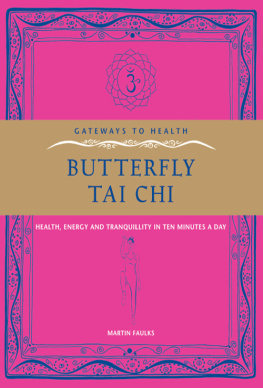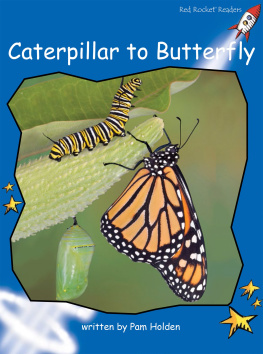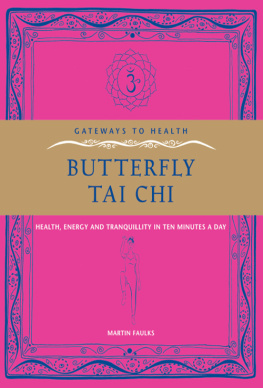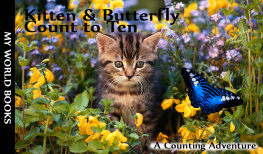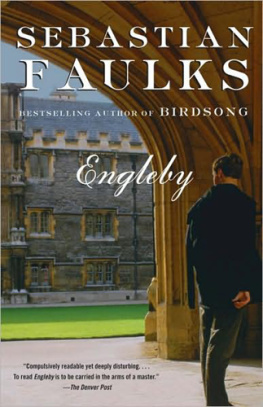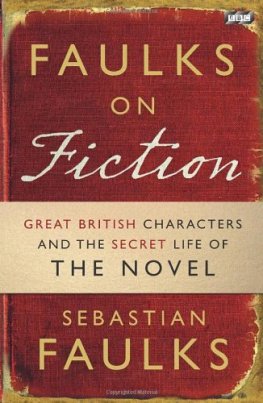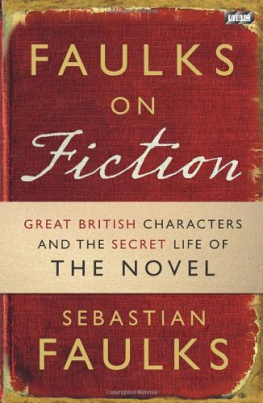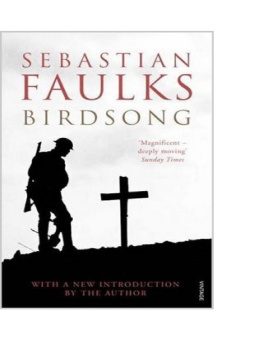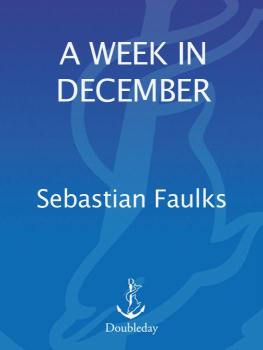M Faulks - Butterfly Tai Chi
Here you can read online M Faulks - Butterfly Tai Chi full text of the book (entire story) in english for free. Download pdf and epub, get meaning, cover and reviews about this ebook. year: 2009, publisher: Watkins Bookshop, genre: Religion. Description of the work, (preface) as well as reviews are available. Best literature library LitArk.com created for fans of good reading and offers a wide selection of genres:
Romance novel
Science fiction
Adventure
Detective
Science
History
Home and family
Prose
Art
Politics
Computer
Non-fiction
Religion
Business
Children
Humor
Choose a favorite category and find really read worthwhile books. Enjoy immersion in the world of imagination, feel the emotions of the characters or learn something new for yourself, make an fascinating discovery.
Butterfly Tai Chi: summary, description and annotation
We offer to read an annotation, description, summary or preface (depends on what the author of the book "Butterfly Tai Chi" wrote himself). If you haven't found the necessary information about the book — write in the comments, we will try to find it.
Butterfly Tai Chi — read online for free the complete book (whole text) full work
Below is the text of the book, divided by pages. System saving the place of the last page read, allows you to conveniently read the book "Butterfly Tai Chi" online for free, without having to search again every time where you left off. Put a bookmark, and you can go to the page where you finished reading at any time.
Font size:
Interval:
Bookmark:

MARTIN FAULKS

TAI CHI


Tai Chi Quian is one of the legendary arts of ancient China. There are many myths about its origins; the most popular and well known tells of its creation 800 years ago by Daoist master Zhang Sanfeng who lived in the Wudang Mountains. The story goes that he had dreams in which the secrets of Tai Chi were taught to him and that, using these dreams as inspiration, he softened Kung Fu into a more spiritually focused martial art.
However, the earliest historical records we have of Tai Chi are only 300 years old and suggest that it was first developed in Chen village in Wenxian County in the Henan Province. It was practised by an army garrison commander and great warrior called Chen Wing Ting.
Many martial arts had developed throughout China due to many years of foreign invasions and peasant uprisings. But while previous arts had consisted of powerful quick movements, Tai Chi emphasized using the opponents force against them: overcoming the vigorous with the soft, using one pound of weight to redirect 1000 pounds and most of all adapting oneself to the opponent. The Tai Chi movements from this period have both soft and gentle movements and energetic forceful strikes. As time went on Tai Chi continued to evolve away from its martial roots and the movements became far gentler and more health focused.
Many styles of Tai Chi developed throughout China and five main styles remain to this day: Chen (the original martial style); Yang (a softer, more circular form); Wu (known for its smaller stances and smaller movement); and second styles, another also named Wu (known for its quick short range movements); and Sun (known for its fast pace and advanced footwork).
Tai Chi is an art drawn from the Chinese spiritual tradition known as Taoism ( ). Taoism is over two thousand years old and translates into English as the Path, or the Way and is more of a way of life or a spiritual path than a religion in the Western sense. Taoism is guided by The Three Jewels of the Tao; these are compassion, moderation and humility. Generally speaking, Taoist philosophy focuses on achieving harmony, health, longevity, immortality, spontaneity and effortless action (wu wei). Central to the Taoist philosophy is a belief in the underlying force or guiding principle in the universe called the Tao.
). Taoism is over two thousand years old and translates into English as the Path, or the Way and is more of a way of life or a spiritual path than a religion in the Western sense. Taoism is guided by The Three Jewels of the Tao; these are compassion, moderation and humility. Generally speaking, Taoist philosophy focuses on achieving harmony, health, longevity, immortality, spontaneity and effortless action (wu wei). Central to the Taoist philosophy is a belief in the underlying force or guiding principle in the universe called the Tao.
Tao is everything that is natural: all the laws of physics, the laws of science, the way your mind works, the rules of nature and biology. It affects everything: every plant, every animal and every person. In other words, Tao is the guiding force behind existence. In truth, Tao is not something that can be defined, it can only be experienced.
The aim of Taoism is to become at one with Tao: to live in harmony with the fundamental structure and natural order of everything. This is not achieved through struggle but through going with the flow. If you resist you become a blockage in the natural order. By relaxing you become far more powerful. The great Tai Chi masters of old used to say, Water is the softest thing; because of its softness not even a tiger can hurt it with its claws, and it can wear through the hardest rock.
In other words, always swim with the flow of the river. Tai Chi follows all these principles, and through relaxed Tai Chi practice it will become possible for you to experience the Tao.

The traditional styles of Tai Chi consist of a set of movements joined together like a slow dance, with one move flowing to another without hesitation. The form appears to the onlooker to be like clouds floating across the sky, or similar to a snake moving slowly along the floor. Each traditional form consists of 108 movements and really needs to be performed in a large hall or outside. The whole form can take over half an hour to finish.
In recent times it has become increasingly difficult for people to find room to practise such a long form and many find it hard to remember all the movements. So in the last 50 years shorter forms of Tai Chi have developed, the most popular being the 24 Move Form, a simplified form developed by Li Tian Ji.

I began to realize, though, that many of my students found that even this form was hard to practise in a modern Western domestic setting, so I resolved to develop a form of Tai Chi that could be practised while standing on the spot. In a hotel room, for example, or by someone with restricted living space. However, in Tai Chi movement is required to keep the internal energy, or force, flowing and movements practised in a stationary position can lead to stagnation of the energy. I tried in vain to find a way to develop a form that would involve virtually no movement while maintaining the flow of Tai Chi, and I had all but given up when inspiration came from the most unlikely of places.
I noticed a butterfly moving its wings to warm itself in the sunshine and as I watched it occurred to me that this was one of the only animals I had ever seen exercise. Butterflies are cold-blooded and they flap their wings in the sunlight because they need to warm up a little before they can fly. The butterfly was stationary but inside everything was moving. By flapping its wings it was circulating the newly warmed blood throughout its being. I suddenly knew where I was going wrong: if the practitioner was going to be stationary then the flow had to happen internally. I would design the Tai Chi movements so that they naturally enhanced the Qi flow in the order dictated by Chinese medicine. Thus, with the aid of my instructor, was born the Tai Chi set that is described in this book, one which I believe to be even more effective than the traditional Tai Chi forms as far as health benefits are concerned.
Tai Chi Quian is a traditional Chinese system of health preservation and illness prevention. Tai Chi could be seen as the healthiest art in existence as it includes the health benefits of calm and gentle exercise, along with the physiological and stress-relieving benefits of meditation and the curative power of acupuncture. For this reason, Tai Chi is frequently prescribed in China as a treatment for illnesses as diverse as high blood pressure, neurasthenia, pulmonary tuberculosis, nervous breakdown, impotence, anxiety disorder, depression, arthritis and even diabetes. The real power of Tai Chi, however, lies in its power to prevent illness.
Studies into the effects of Tai Chi have shown that despite the fact that the exercises are gentle and require relaxation, they also involve focus and visualization. They bring about great benefits to the functioning of the central nervous system while at the same time stimulating the cerebral cortex, causing stimulation in certain areas and offering protection in others. This allows the cerebral cortex to take a rest from any pathological excitement caused by mental diseases.
Font size:
Interval:
Bookmark:
Similar books «Butterfly Tai Chi»
Look at similar books to Butterfly Tai Chi. We have selected literature similar in name and meaning in the hope of providing readers with more options to find new, interesting, not yet read works.
Discussion, reviews of the book Butterfly Tai Chi and just readers' own opinions. Leave your comments, write what you think about the work, its meaning or the main characters. Specify what exactly you liked and what you didn't like, and why you think so.

